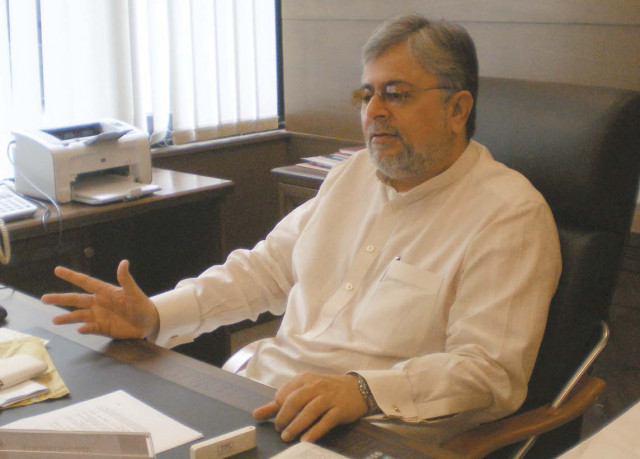Lack of coordination costs Pakistan the IMF programme
Lack of coordination between political leadership and economic team led to the collapse of talks with the IMF.

Lack of coordination costs Pakistan the IMF programme
Sources privy to latest developments told The Express Tribune that two different sets of statistics about flood damages to the economy irritated the IMF staff that negotiated with Pakistani delegation, headed by Finance Minister Dr Abdul Hafeez Shaikh, in Washington.
“The IMF staff was already perplexed by economic growth and inflation numbers in the aftermath of the floods, as different data came out of the finance ministry but the major blow came from none other than Prime Minister Syed Yousaf Raza Gilani,” a source said.
Talks between Pakistan and the IMF failed on Thursday, as the Fund refused to give relaxation on the levy of reformed General Sales Tax from October 1, increase in power tariffs and giving autonomy to the State Bank. This led to another delay of at least three months in the release of next tranche of $1.7 billion and suspension of the programme till December.
A $450 million emergency flood assistance became the major achievement of the visit of 17 officials. The visit cost Pakistan over Rs10 million only on three heads of travel, accommodation and food.
Prime Minister Gilani, while chairing a cabinet meeting on September 1, gave stunning figures about damages to the economy, inflation and budget deficit which did not match those presented by the finance ministry to the IMF. The ministry sought relaxation on certain conditions by hiding behind the flood damages.
Finance Minister Hafeez Shaikh informed the IMF that despite the worst-ever floods the budget deficit - the gap between income and expenditure - would not exceed Rs850 billion, Rs165 billion more than the actual target, sources said.
Contrary to that, the premier told the cabinet that budget deficit would skyrocket to seven per cent of Gross Domestic Product (GDP) or Rs1.18 trillion, Rs330 billion more than the finance ministry’s revised numbers. The statement came at a time when talks with the Fund had entered into a crucial phase just ahead of a decision.
The other disputed figure was that of inflation. Shaikh assured the IMF team that inflation would not rise above 13 per cent in any case, 3.5 per cent more than the pre-flood target. However, the PM dealt a blow to both the Pakistani delegation and the IMF by declaring that inflation would surge up to 20 per cent.
Even the finance ministry was confused about the real impact of floods on inflation and economic growth but it presented the statistics prepared by secretary finance and deputy chairman Planning Commission and ignored the numbers of economic adviser. However, those numbers reached the IMF through media reports.
Principal economic adviser, Saqib Sherani, who has been sidelined after Shaukat Tarin’s resignation from the post of finance minister, had said that in the worst case scenario the economic growth would be zero and inflation would be 25 per cent.
The Fund staff was lost somewhere between the statistics of the visiting delegation and those revealed by the prime minister, sources said. “The IMF advised the finance minister to go back and bring the acts together before seeking relief,” said a key finance ministry official.
The official, who wished not to be named due to sensitivity of the issue, said “the Prime Minister’s Secretariat did not consult us before announcing the statistics.” He admitted that the premier’s statement caused negative fallout on talks with the IMF.
Gilani gave another shocking figure of $43 billion loss to the economy. “I don’t know from where he got this number, as no one at this point in time knows the actual damages and the assessment task has been assigned to the World Bank and the Asian Development Bank,” said a top-ranking official of the finance ministry.
The outcome of lack of coordination and failure to deliver on promises was not as easy to digest as the political leadership might be thinking, he added.
“Pakistan has to levy the GST both on goods and services from October. It has to increase electricity prices. It has to give autonomy to the State Bank and above all it has to show fiscal discipline,” said the dejected official and added the political leadership was not realising that.
Published in The Express Tribune, September 5th, 2010.



















COMMENTS
Comments are moderated and generally will be posted if they are on-topic and not abusive.
For more information, please see our Comments FAQ